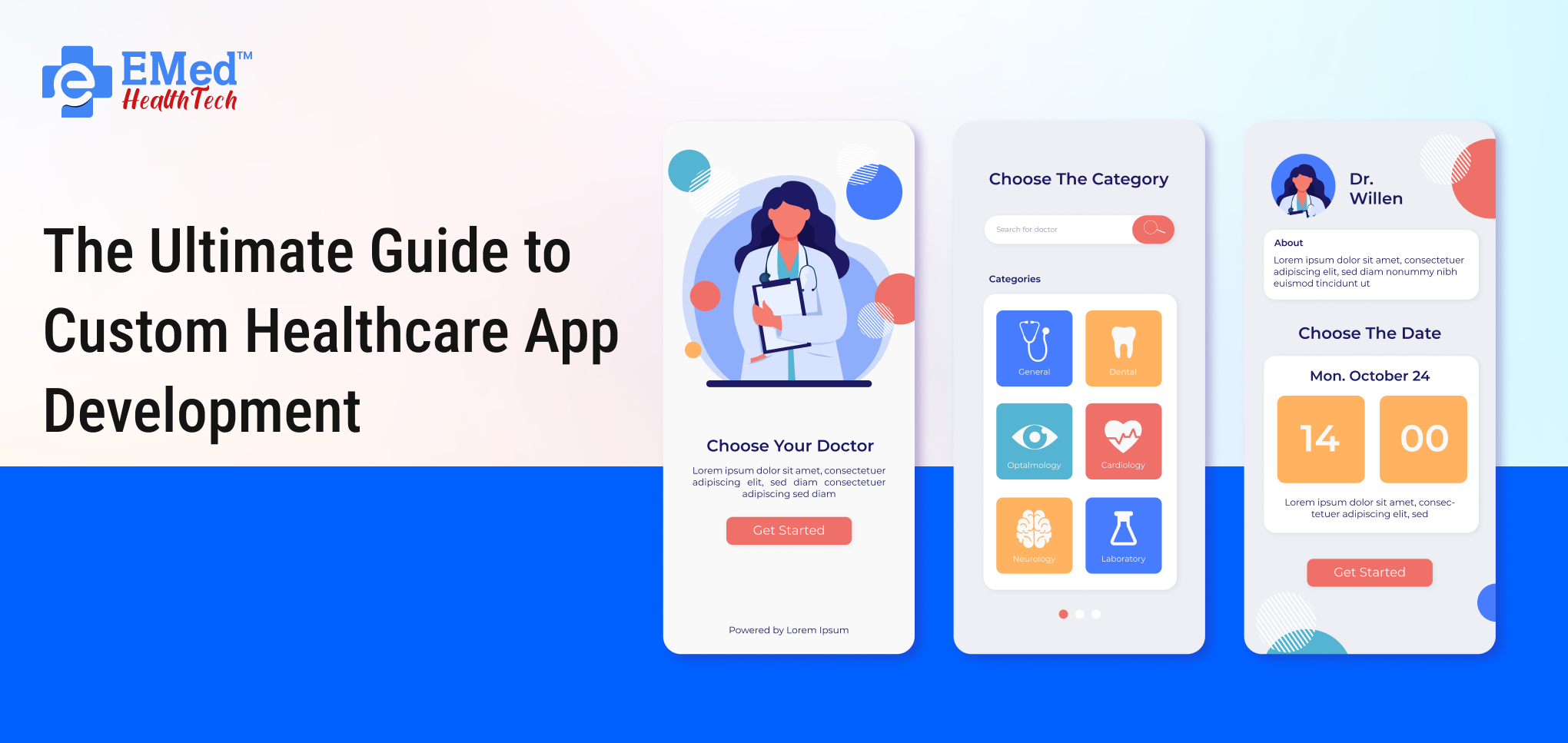The healthcare industry is rapidly evolving, with digital technology significantly improving patient care and streamlining medical operations. Custom Healthcare App Development is at the forefront of this transformation, offering tailored solutions that enhance accessibility, efficiency, and engagement. Whether you’re a hospital, clinic, pharmacy, or telemedicine provider, a custom healthcare app can elevate your services to the next level.
This comprehensive guide explores everything you need to know about custom healthcare app development—from key features and development processes to compliance considerations and future trends.
1. Why Healthcare Businesses Need a Custom Mobile App
The Growing Demand for Digital Healthcare
The healthcare industry is shifting towards digital solutions, with mobile health (mHealth) applications expected to reach $189 billion by 2025. Patients today demand convenient, on-the-go healthcare services, making mobile apps a necessity for modern medical businesses.
Benefits of a Custom Healthcare App
Improved Patient Engagement – Apps provide seamless communication, reminders, and access to medical records.
Operational Efficiency – Automate administrative tasks such as appointment scheduling, billing, and documentation.
Remote Healthcare Services – Enable telemedicine and virtual consultations for better patient access.
Better Compliance & Security – Protect sensitive data with HIPAA and GDPR-compliant solutions.
Enhanced Diagnosis & Treatment – AI-driven analytics help healthcare providers make informed decisions.
2. Types of Healthcare Apps
Before diving into custom healthcare app development, you need to determine the type of app that best suits your healthcare business.
1. Patient-Focused Apps
Telemedicine Apps – Connect patients with doctors via video consultations.
Medication Management Apps – Send reminders for prescriptions and refills.
Health & Wellness Apps – Track fitness, nutrition, and mental health.
Patient Portal Apps – Secure access to medical history, reports, and doctor communication.
2. Provider-Focused Apps
Electronic Health Record (EHR) Apps – Store, manage, and retrieve patient data.
Appointment Scheduling Apps – Automate booking and reminders.
Medical Diagnosis & AI Apps – Use AI-powered analysis for clinical decision-making.
Hospital Management Apps – Manage staff, inventory, billing, and operations.
3. Pharmacy & Lab Apps
Online Pharmacy Apps – Allow patients to order medicines with doorstep delivery.
Diagnostic & Lab Apps – Schedule lab tests and access reports online.
3. Key Features of a Custom Healthcare App
For Patients:
User Registration & Profiles – Secure login for easy access.
Telemedicine & Virtual Consultations – Video calls and chat with doctors.
Appointment Booking & Management – Schedule, reschedule, and receive reminders.
E-Prescriptions & Medication Tracking – Manage prescriptions with notifications.
Secure Payment Gateway – Enable online payments for consultations and services.
For Healthcare Providers:
EHR Integration – Access and manage patient medical records securely.
AI-Powered Analytics – Get insights into patient health trends.
Automated Workflow & Billing – Reduce paperwork and enhance efficiency.
Interoperability with Medical Devices – Sync with wearables and IoT for real-time monitoring.
For Admins & Organizations:
HIPAA & GDPR Compliance – Ensure data protection and regulatory adherence.
Multi-Platform Support – Mobile, web, and desktop accessibility.
Advanced Reporting & Dashboards – Track operations, patient trends, and revenue.
4. Step-by-Step Healthcare App Development Process
Step 1: Define Your Objectives & Business Model
Identify the type of app you need based on your target audience.
Decide whether you want a B2B (clinics, hospitals) or B2C (patients) model.
Step 2: Research & Plan Your Features
Conduct market research to understand user needs and competitors.
Finalize the list of essential features based on your app’s purpose.
Step 3: Choose the Right Technology Stack
Front-End Development: React Native, Flutter (for cross-platform apps).
Back-End Development: Node.js, Python, Django.
Database Management: MongoDB, MySQL, PostgreSQL.
Security & Compliance: End-to-end encryption, two-factor authentication.
Step 4: UI/UX Design & Prototyping
Create intuitive and user-friendly designs for better engagement.
Use wireframes and prototypes to visualize the app before development.
Step 5: App Development & Integration
Develop the app in phases using Agile methodology.
Integrate with EHR systems, payment gateways, and medical devices.
Step 6: Testing & Quality Assurance
Perform functional, security, and compliance testing to fix bugs.
Conduct beta testing with real users to gather feedback.
Step 7: Deployment & Launch
Publish the app on Google Play Store & Apple App Store.
Ensure continuous monitoring & updates post-launch.
5. Compliance & Security Considerations
Healthcare apps handle sensitive data, making compliance with global healthcare regulations crucial.
Key Regulations:
HIPAA (USA) – Protects patient data and privacy.
GDPR (Europe) – Ensures data security and user consent.
HITECH Act – Enhances digital healthcare security.
FDA Approval (For Medical Apps) – Required for diagnostic and treatment-related apps.
Security Measures to Implement:
End-to-end encryption & secure APIs.
Multi-factor authentication for user access.
Regular security audits & compliance updates.
6. Cost of Developing a Custom Healthcare App
The cost of healthcare app development depends on features, platform, and complexity.
Estimated Costs:
Basic MVP (3-6 months) – $20,000 to $50,000
Mid-Level App (6-9 months) – $50,000 to $150,000
Advanced App (9-12+ months) – $150,000+
Factors influencing cost:
Custom Features & Integrations
UI/UX Design Complexity
Third-Party API Usage
Security & Compliance Requirements
7. Future Trends in Healthcare Apps
AI & Machine Learning: Personalized treatment recommendations.
Blockchain in Healthcare: Securing medical records.
IoT & Wearables: Real-time health tracking & remote patient monitoring.
Augmented Reality (AR) in Surgery: Enhanced training and procedures.
Voice Assistants in Healthcare Apps: AI-powered symptom checkers.
Conclusion:
Transform Your Healthcare Business with a Custom Mobile App!
Custom Healthcare App Development is revolutionizing the industry, offering a seamless experience for patients and providers alike. With the right features, compliance measures, and cutting-edge technology, your healthcare app can enhance efficiency, improve patient care, and drive business growth.
Ready to build your custom healthcare app? Partner with emedhealthtech.com for expert development solutions and step into the future of digital healthcare today!

